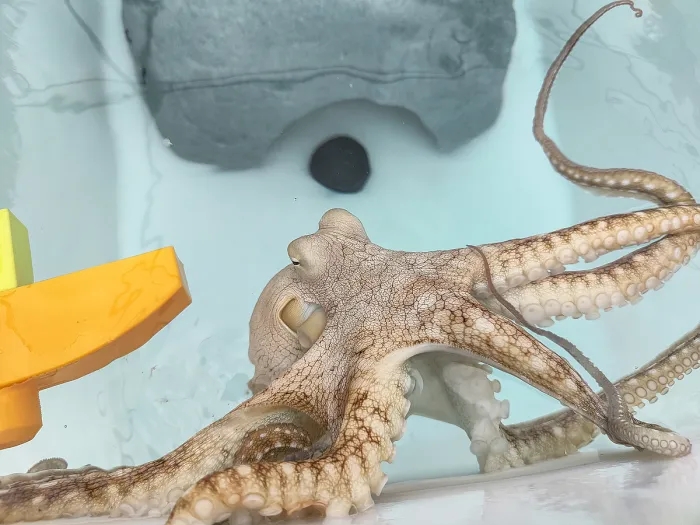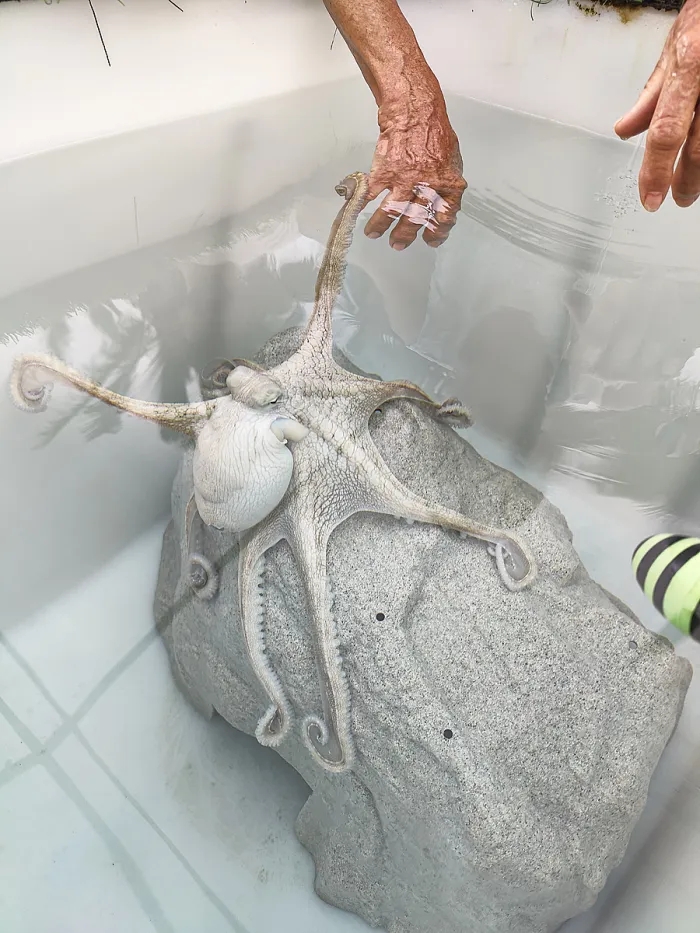
Laura Lee Cascada , a photographer, writer and activist, took a one-hour tour of the Kanaloa Farm Octopus Farm, Hawaii. She saw octopuses repeatedly trying to escape from their tanks. She tells me that the tour guide patrolled enclosures, telling her to put their arms back into them. One had escaped a few days earlier.
The tourists were rushing by, reaching into their tanks. Other octopuses could only be seen partially. They were hiding in a tiny rock cave. The only shelter that the animals were given.
Kanaloa’s Octopus Farm* advertised itself as an “octopus petting zoo” and also performed breeding experiments, which are always fatal to the mothers. The babies suffer high mortality rates. Cascada bought a ticket and took a tour of the facility to learn what went on behind the scenes.
Cascada is investigating factory farms since about 15 years. She has seen the horrific abuse of animals raised for meat including the cutting of tails and beaks, as well as forced impregnation. She saw “psychological agony” at the farm.
Octopuses have a high level of intelligence and are known for their complex cognitive abilities. They can taste and touch their environment without the help of their brains, but their brains have the ability to recognize people and learn through play.
These complex and mysterious creatures are now faced with a new and grave threat that is beyond the scope and reach of this Hawaii “petting-zoo”, factory farming. A Spanish company is trying to set up the first octopus farming in the Canary Islands despite the fact the previous attempts to breed octopuses resulted in cannibalism, self-mutilation, and high mortality.
Factory farming octopuses is also an environmental disaster. Octopuses are carnivores who need to consume two to three times more than their body weight. This would place significant pressure on existing fisheries as well as contribute to food shortages.
She thought of the thousands of octopuses that would be forced to live in unsuitable, inhumane conditions in factory farms before being killed for their meat. We still have time to stop the factory farming industry, but we must act quickly.
